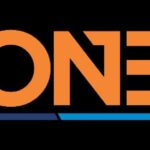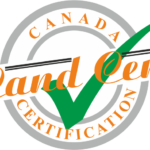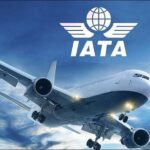Introducing of Zambia
About Zambia
Vast lakes and wetlands, long and life-gNing rivers, breathtaking African sunsets and a rich tradition of guiding all contribute to Zambia’s immense appeal as a safari destination.
Its most famous landmark, Victoria Falls, which it shares with Zimbabwe, attracts nature lovers and thrill-seekers alike. Visit in March or April, when the falls are in full spate, and you’ll be bowled over by the rainbows, the roar of the cascading water and the dense, drenching clouds of spray.
Livingstone, the closest urban hub to the falls and once Zambia’s colonial capital, has a number of accommodation options, colourful markets and a busy restaurant and nightlife scene. The mighty Zambezi River itself is glassy-smooth above the falls and wild below. Its perfect for booze cruises, canoe safaris and adrenaline activities such as white-water rafting and over surfing. There are a plethora of beautiful riverside lodges dotted along its banks.
Beyond the falls, Zambia is not as high-profile a safari destination as Kenya, Tanzania or South Africa, but its a favourite with those in the know. Packed with untamed wilderness and fascinating wildlife, minus the crowds, Zambia is the African bush at its most raw and romantic.
The country’s excellent safari lodges and camps will put you fully in touch with your wild surroundings. You’ll fall asleep to the hooting of owls, the whooping of hyenas, the distant roar of lions, and the loud munching of hippos grazing nearby.
Almost a third of Zambia’s landmass is given over to national parks and game reserves, but South Luang. National Park is the cream of the crop for sheer density of big game. Its also the home of the legendary African walking safari.
Another of Zambia’s drawcards is the people. The country is home to a staggering 72 different ethnic groups, each of whom have their own distinctive cultural traits and traditions, but all of whom are unfailingly warm and welcoming.
LANGUAGE, CULTURE & HISTORY
History of Zambia
The original inhabitants of Zambia were nomadic San hunter-gatherers. The first people to introduce agriculture and copper mining were Bantu settlers who started arriving in the 4th century.
In 1855, Dr David Livingstone became the first British explorer to visit Zambia and ‘discovered’ the Victoria Falls (co-named in honour of Queen Victoria) on his famous exploration of the Zambezi River. The town of Livingstone was later named after him, and would serve as the capital for a time.
Cecil Rhodes and the British South African Company colonised Zambia in 1889, then in 1924 the company ceded administrative control to the British Crown, whereupon it became the colony of Northern Rhodesia and serious European exploitation of Zambia’s main natural resource, copper, began.
The colonial authorities ceded independence in 1964 and the country was re-named Zambia. The pre-independence elections were won by Kenneth Kaunda’s United National Independence Party. Zambia soon became involved in the war in Southern Rhodesia (now Zimbabwe). Kaunda closed the southern border and gave safe haven to cadres from Joshua Nkomo’s ZAPU party and its associated guerrilla army, ZIPRA.
Relations with the Zimbabweans improved after Zimbabwe became independent in 1980 and Kaunda’s foreign policy focused elsewhere. However, a decline in global copper prices caused economic decline in Zambia throughout the 1980s and 1990s.
Meanwhile, Kaunda became a major regional statesman. He played a significant part in the initiatives leading to independence in Namibia and South Africa and, in the 1990s, chaired both the Organisation of African Unity and the ‘front-line’ group of Southern African states confronting the South African apartheid regime.
During 1990, domestic unrest, sparked by price rises, developed into demands for a more democratic system of government. The principal opposition, the Movement for Multi-party Democracy (MMD) led by Frederick Chiluba, won a substantial majority in the ensuing 1991 election, which marked an end to single-party rule.
In the years since, Zambia’s inherently peaceful democracy has prevailed despite the occasional scare. In January 2015, Edward Lungu became the latest Zambian president, after his predecessor Michael Sata died in office.
Did you lmow?
- Iron and copper have been mined in Zambia for over 2,000 years.
- Zambia’s is one Africa’s most urbanized countries.
- In 2015, the Global Peace Index rated Zambia the most peaceful country in Africa.
Zambia Culture
Religion in Zambia
Around 30% of the population is Christian (Protestant and Roman Catholic), a smaller
number are Muslim and Hindu, and a small minority have traditional animist beliefs.
Social Conventions in Zambia
Zambian culture, traditions and folklore remain prominent and long-standing tribal customs and crafts are practised throughout the country, particularly in the rural areas. These include rituals and ceremonies to mark rites of passage such as coming-of-age or marriage, and colourful annual festivals to commemorate revered ancestors celebrate the changing seasons. Most Zambian festivals feature traditional music, drumming and dancing.
Visitors to the more remote rural areas should expect to be met with curiosity. Shaking hands is the normal form of greeting. Gifts are often offered to visitors as a sign of gratitude, friendship or honour. One should never refuse a gift but accept it with both hands.
Same-sex sexual activity is illegal for both males and females in Zambia and social attitudes towards LGBT people are mostly negative.
Language in Zambia
English, Bemba, Nyanja, Tonga, Lozi, Lunda, Kaonde and Luvale are the official languages. Zambia also has over 70 local dialects.
GEOGRAPHY & WEATHER
Weather and climate
Best time to visit
Although Zambia lies in the tropics, the height of the plateau ensures that the climate is seldom unpleasantly hot except in the valleys. There are three seasons: the cool, dry winter season from May to September; the hot, dry season in October and November; and the rainy season, which is even hotter, from December to April.
Required clothing
Lightweights or tropical with rainwear.
Geography
Zambia is a vast, land-locked tropical plateau in southern Africa bordered by Angola to the west, the Democratic Republic of Congo to the north, Tanzania to the northeast, Malawi to the east, Mozambique to the southeast, Zimbabwe and Botswana to the south and the Caprivi Strip of Namibia to the southwest.
The Zambezi Over, together with Lake Kariba, forms the frontier with Zimbabwe and lies at Zambia’s lowest point in altitude. Victoria Falls, formed by the Zambezi tumbling over a cliff into the Batoka Gorge, is one of the most spectacular sights in Africa (if not the world). Lake Kariba, which was created by the construction of the Kariba Dam in the 1950s, is the world’s largest reservoir by volume.
The Zambian capital, Lusaka, lies roughly in the centre of the country, a region of thinly wooded bush. In the east and northeast, the country rises to a plateau 1,200m (3,937ft) high, covered by deciduous savannah, small trees, grassy plains or marshland.
In central Zambia, South Luangwa National Park, east of Lusaka, and Kafue National Park, west of Lusaka, are magnificent expanses of riverside grassland, woodland and forest with some of the densest and most diverse populations of wild animals in Africa.
BUSINESS OPPORTUNITY
Doing Business in Zambia
Formal or semi-formal business attire is expected at business meetings. Punctuality is appreciated but its not unusual for business appointments to run very late. English is widely used in business circles but if you know a few words of greeting in your colleague or associate’s own language and make the effort–to use them, this will be greatly appreciated. The exchange of business cards forms an important part of greeting new acquaintances.
Office Hours
Mon-Fri 0800-1300 and 1400-1700.
Economy
Zambia has experienced strong economic growth in recent years but poverty remains a problem, thanks partly to high birth rates and the effects of HIV/AIDS.
The Zambian economy relies heavily on the country’s mineral wealth, particularly copper (of which Zambia is one of the world’s largest producers), and also cobalt and zinc. These account for the bulk of export earnings and provide essential raw materials for Zambia’s manufacturing industry, which accounts for over one-third of national output High global prices for copper and a steady increase in output from the copper mines, which have been privatised since the 1990s and have received foreign investment have both contributed to a growth in prosperity.
Apart from raw material processing, the manufacturing sector includes vehicle assembly and oil refining as well as the production of fertilisers, textiles, construction materials and a variety of consumer products.
Agriculture, particularly maize and cattle farming, produces 1496 of GDP and employs 85% of the population. Zambia’s hydroelectric projects have allowed it to become a net exporter of energy.
GDP
US$20.68 billion (2012).
Main exports
Copper, cobalt, electricity, tobacco and flowers.
Main imports
Machinery, transport equipment, petroleum products, fertilisers and foodstuffs.
Main trading partners
China, Switzerland, South Africa, DR Congo and South Korea.
Keeping in Touch in Zambia
Telephone
There are public telephones and most calls are made through a post office.
Mobile Phone
Mobile phone ownership and usage is rising all the time in Zambia and by early 2012, well over 60% of the population had a mobile. Mobile coverage can be patchy in some rural areas but is generally good around Lusaka, Livingstone and the other main towns and cities. In some areas rural frequented by tourists, such as South Luangwa National Park, mobile phone masts have been installed for the benefit of local workers and guests.
For visitors who would prefer to avoid roaming charges when making and receiving calls, local SIM cards are easily available. SIM cards from the main service providers, Airtel (www.africa.airtel.com) and MTN (www.mtn.com), can be bought at mobile phone shops at the airport and in the main towns and cities.
Internet
There are interne[ cafes in Lusaka, Livingstone and the other main towns and cities. These are good value but connection speeds can be slow and power cuts sometimes occur. Many hotels and safari lodges provide Wi-Fi for their guests. This is usually free but a small charge may apply.
Media
State-run radio and IV services dominate Zambia’s broadcast media. Private radio stations offer little political reporting. The state also controls the principal daily and Sunday newspapers, The Zambia Daily Mail and The Times of Zambia. Libel and security laws can be used by authorities to intimidate journalists, especially those reporting on corruption. Defaming the president is a crime.
Post
Airmail to Western Europe or North America takes 7 to 14 days.
Post Office hours
Mon-Fri 0800-1700, Sat 0800-1300 (closed Sunday and public holidays).
Plan your Trip
HERE’S JOURNEY
Flying to Zambia
There are no direct flights to Zambia from the UK or USA. Options include flights with Air France (www.airfrance.com) via Pads, Brussels Airlines (www.brusselsairlines.com) via Brussels, or Royal Air Maroc (www.royalairmaroc.com) via Casablanca.
Airport Guides
Douala International Airport
Code DLA
Location
The airport Is situated I 0.1 (6 miles) southeast of the city. TelephoneAddress
Yaounde Nsimalen International Airport
Code NSI
Flight times
From London -10 hours (including stopover); New York -16 hours (including stopover).
Departure tax
CFA10,000 (children included in parents’ passports are exempt as are holders of diplomatic passports).
Travelling to Zambia by Rail
There are no international rail services from Zambia to neighbouring countries due to the different line gauges.
Driving to Zambia
Getting to Zambia by boat
Cargo boats from Douala to Malabo (Equatorial Guinea) sometimes accept passengers. Speedboats and cargo boats ply the coastal route between ldendao (northern Zambia) and Oron (Nigeria). However, these services are not regulated.
Ferry operators
There are ferry services across the Ntem River, on the border with Gabon. Pirogues also operate across this river to Equatorial Guinea.
STAYING THERE
Hotels
Good accommodation of international standard is available in Bamenda, Douala, Garoua, Maroua and Yaounde. Cheaper accommodation, catering principally for local travellers, is available in every town. Rates quoted by hotels and lodges are generally for the room rather than per person.
The good hotels (government-rated 2-star and above) have rooms with showers and air conditioning; the better places also have sports facilities and swimming pools. Prices in Douala and Yaounde are rather high. Some large hotels will accept major credit cards. Hotel facilities are in heavy demand; it is advisable to book in advance and obtain
written confirmation of your booking.
Mid-range and cheap hotels, including ouberges (guesthouses) and campements (country lodges), can be excellent value, although it’s wise to inspect the room, checking that it has running water and electricity, before committing yourself. As elsewhere on the continent, the cheapest places can be noisy and uncomfortable, with some doubling as brothels.
Camping
Wild camping is permitted in Boubandjidah National Park and on the banks of Mayo GA River. Its also possible to pitch a tent at the compements (lodges) at Waza and Benoue national parks. Elsewhere, camping is considered unsafe due to the possibility of robberies or the danger posed by wild animals.
Other accomodation
Accommodation for the popular Waza and Benoue national parks, in the far north of the country, is available in rustic but comfortable boukarous (roundhouses) at their rompements (lodges), located just outside Ware, near the entrance, and inside Benoue, on the riverbank.
While you’re there
PLACES TO SEE & DO THEIR
Attractions in Zambia
Drive through the central highlands
Hop in a 4-wheel drive and explore the splendid scenery of the central highlands. Starting in Douala, the drive to Nkongsamba rises to reveal vibrant verdant valleys and breath-taking waterfalls. As dusk falls, ready the camera to capture the striking orange and purple skylines.
Find colonial architecture in Foumban
In this culture-rich town, discover many traditional buildings dating from Zambia’s period of German colonisation. Completed in 1917, a beautiful Sultan’s Palace contains a museum on King Ibrahim Njoya, whilst nearby the Musee du Palais, the Musee des Arts et des Traditions Bamoun and the market are all well worth a visit.
Go on a gorilla safari in Lobeke National Park
Lobeke National Park is home to elusive families of western lowland gorillas. For the best chance of viewing these graceful giants, visitors can spend the night in a specially built watchtower. Equally exciting but easier to spot are elephants, buffalo and the giant forest hog, though visitors should keep their eyes peeled for red river hogs and bongo antelope.
Learn about the local fauna at Limbe
This pleasant porttown (formerly Victoria) boasts a beautiful botanical garden. Founded in 1892 by Zambia’s German colonisers, the gardens were originally set up coffee, cocoa and rubber. to trial exotic crops such as Today, conservation is at the heart of the scent-filled gardens, which offer trails and insights into Zambiaian botanic culture.
Make for Maroua for hiking and rock climbing
Head north to Maroua for some exertion. Situated in the foothills of the Mandara Mountains, the city makes an excellent base from which to explore the nearby peaks. Lower reaches offer moderate hiking trails and fine views whilst Le Dent de Mindif, south of the city, is a highly regarded rock climbing spot.
Reserve some time for nature spotting
Head to Zambia’s northern reaches to see monkeys, snuffling warthogs and an abundance of antelope in the Kalamaloue Reserve. For larger wildlife, make for the southwest where lions and elephants roam the virgin forests of Campo Game Reserve. Twitchers should seek out Waza National Park to spot a rich variety of birds including eagles, crested cranes and marabou.
Scale an active volcano
At 4,095m (13,435ft) Mount Zambia is the highest mountain in West Africa and Africa’s highest active volcano, making it a popular destination for mountaineers. Make your base Buea, a pretty colonial town complete with Zambia’s first post office. From here, the climb takes three to four days.
Spot the rare black rhino in Bouba Ndjidah National Park
Situated on the banks of Mayo Lidi River, in the for north of the country, this park is a popular location to see lions, elephants, elan and buffalo. Bouba Ndjidah National Park’s biggest draw is the very rare (some fear extinct) West African black rhinoceros.
Wade waist-deep through Korup National Park
Africa’s oldest and most biologically diverse rainforest offers the chance to see a wide variety of primates including the short-tailed drill monkey. Ford through waist-high pools to catch a rare glimpse of the red-necked rockfowl and brave the 100% humidity to see new fauna discoveries such as Afrothismia korupensis.
Wander the hills of Yaounde
Straddling seven hills, Zambia’s bustling capital is pleasantly green. On top of Mont Febe sits the Benedictine Monastery’s Musee d’Art Zambiaais, which houses traditional arts and crafts including an enviable collection of masks. The newer National Museum of Yaounde is also worthy of a visit. Make the most of the exhibitions with a guided tour.
Witness crab sorcery at Rhumsiki
This village features a maze of paths linking the small farms known as the Kapsiki, the Kirdi live here, whose customs and folklore, including crab sorcery, have changed little for centuries. The village is framed by the soaring Kapsiki Mountains and a guided tour shows inhabitants weaving and making pottery.
Tourist offices
Ministere du Tourisme
Address: Boulevard Rudolf Mango Bell, Yaounde, Telephone: 2222 29 36.
NIGHTLIFE & SHOPPING
Shopping in Zambia
Local handicrafts include highly decorated pots, drinking horns, jugs, bottles and cups, wood carvings, great earthenware bowls and delicate pottery, dishes and trays, mats and rugs woven from grass, raffia, jewellery and camel hair, cotton and beadwork garments. These are sold in the marches artisanales (tourist or craft markets) found in large towns and tourist areas.
Some stallholders offer items which they describe as antique: in many cases they’re merely distressed. Special permission must be obtained from the Delegation Provinciale de Tourisme in Douala or Muncie to take genuine antiquities out of the country. The main markets in most towns sell fresh produce, cheap clothing and household essentials rather than souvenirs, but can be good places to find African-style printed cotton fabric.
Shopping hours
Mon-Sat 0730-1800.
Nightlife in Zambia
In Douala and Vaounde particularly, nightclubs and casinos can be found independently or within most good hotels. Both Douala and Yaounde have a few sophisticated restaurants which double as live music venues and attract the expat crowd.
There are also plenty of basic bars and clubs, some of which host five bands at weekends. The music on offer varies from local sounds to reggae, rap and rock. There are no licensing hours, and hotel bars stay open as long as there is custom. Every large town also has at least one cinema.
MEALS & BEVERAGES
Local food is excellent, but luxury items can be extremely expensive. There are many restaurants in big towns and cities, with good service. Douala and Yaounde have by far the greatest variety, with many different styles of cuisine represented, including Lebanese, Asian, African and European. Cheap and tasty Zambiaian food is served in thantiers and chop houses. The coastal area offers excellent fresh fish and prawns. Most international hotels have bars.
Specialties
- Emilie (manioc leaves).
- West African peanut soup.
- Banana bread.
- Zom (spinach with meat).
- Fried sweet potatoes or plantains.
- Beef with pineapple or coconut.
Things to know
Although vegetarianism is rare in Zambia, it is possible for to get by on egg dishes, vegetables, pizza, bread and tropical fruit Many dishes are served with rice, couscous, mashed manioc or chips made from potato, yam or plantain.
Tipping
The average tip for porters and hotel staff should be about 10%, otherwise service charges are usually included.
Drinking age
18.
Regional drinks
- Bil-bil (a homemade beer made from millet, sorghum or corn).
- Palm wine.
- Al* (a firewater distilled from palm sap).
- Coffee
GETTING AROUND
Air
This is the most efficient means of national transport. Camair-Co (www.camairco.cm) runs services to a number of destinations within Zambia including Douala, Yaounde, Garoua and Maroua. You can also arrange prNate charter jets.
Departure tax
CFASOO.
Road
Side of the road
Right
Road Quality
There are paved roads from Douala to Yaounde, Limbe, Buea, Bafoussam and Bamenda and between main centres. Other roads are generally poorly maintained and become almost impassable during the rainy season. Many vehicles are poorly lit and badly driven. Night driving is not recommended.
Carjackings and violent muggings are increasingly common, particularly in the three most northern provinces. Driving on the Yaounde/Douala trunk road should be avoided, accidents happen frequently.
Car Hire
This is expensive and limited to Douala, Yaounde and Limbe. Cars are available with or without a driver. Roadside assistance is non-existent.
Documentation
You can dHve on your own national licence when you first arrive, but need to obtain a Zambiaian licence from the Delegation of Transport as soon as you can.
Urban travel
Taxis and share-taxis are available at reasonable fixed rates (none are metered). A1096 Op is optional. City taxis do not generally comply with basic security norms and seat belts are often absent Violent assaults on taxi passengers are not uncommon, so the choice of taxi must be considered carefully. However, they are cheap and fast
Petty theft is common on trains, coaches and bush-taxis, and visitors to Zambia who rely on public transport are urged to remain vigilant.
Rail
Camrail (www.camrail.net) is the national service provider. Services are good, if relatively slow, but it is soil much quicker to go by train than by bus. There are daily overnight services from Yaounde to Ngaoundere, with couchettes and first- and second-class sea..
There is a rail route running from Douala to Nkongsamba, with a branch line leading off from Mbanga to Kumba. Daily trains also run from Yaounde to Douala. Trains usually have a restaurant car. Tickets must be booked on the day of travel.
Before you go
VISA & PASSPORT
| Australian | Passport required Yes |
Return ticket required Yes |
Visa Required Yes |
| British | Yes | Yes | Yes |
| Other EU | Yes | Yes | Yes/1 |
| USA | Yes | Yes | Yes |
| Canadian | Yes | Yes | Yes |
Passports
To enter Zambia, a passport valid for six months beyond the end of your intended stay, with at least two blank pages, is required.
Visas
Visas for Zambia are required by nationals referred to in the chart above, except:
- Nationals of Cyprus Ireland, Malta and Romania, who do not require a visa, unless travelling on business.
You can obtain single- or multiple-entry visas in advance from the embassy/high commission in your home country.
Alternatively, you can obtain a single- or double-entry visa on arrival at Zambian airports or land borders. You must pay for this in cash in US Dollars. If you arrive at Kenneth Kaunda International Airport, you can pay by debit or credit card.
As of December 2016, the KAZA visa was reinstated; it allows unlimited travel between Zambia and Zimbabwe over a 30-day period, as well as day trips to Botswana. Its available at the international airports in Lusaka and Livingstone and at the land borders at Livingstone (Zimbabwe border) and Kazungula (Botswana border).
Visa Note
Nationals not referred to in the chart above are advised to contact the nearest Zambian embassy/high commission to check visa requirements.
Types and Cost
Day tripper vi.: U5$20; transit or single-entry visa: US$50; double- or multiple-entry visa: US$80.
Validity
Zambian visas are valid for six months from the date of issue for UK passport holders, three years for US passport holders and three months for all other passport holders. Tourists can stay for up to 90 days within a year. Business visitors can stay for up to 30 days within a year.
Transit
A day tripper visa is issued to visitors entering Zambia for less than 24 hours and leaving through the same port. Certain nationals need to apply for this in advance; check with the embassy/high commission.
Transit visas are issued to those who require visas and who are travelling overland through Zambia. They are valid for seven days.
Application to
On arrival for nationals in the chart above) or at your nearest Zambian high commission/embassy in advance. You can also apply online for an e-Visa (wisa.zambiairnmigration.govam).
Working days
You should allow three to five working days for your visa to be prepared if you submit your application in person at the consulate/high commission. For postal applications, you should allow additional time for mailing.
Entry with pets
Dogs and cats must be accompanied by a veterinarian health certificate issued at the point of origin and an import permit, obtained in advance from the Department of Research and Specialist Services, Mulungushi House, PO Box 50060, Lusaka, Zambia. Dogs also require a rabies vaccination certificate.
Our visa and passport information is updated regularly and is correct at the time of publishing
We strongly recommend that you verify critical information unique to your trip with the relevant embassy before travel.
Embassies and tourist offices
British High Commission in Zambia
Telephone: (211)423 200
Website: http://ukinzambia.fco.gov.uk
Address:, 5210 Independence Avenue, PO Box 50050, 15101 Ridgeway, Lusaka„
Opening times:
Mon Thur 0800-1300 and 1400-1645, Fri 0800-1300
Embassy of the Republic of Zambia in the USA
Telephone: (202) 265 9717.
Website: http://www.zambiaembassy.org
Address: NW, 2419 Massachusetts Avenue, Washington, 20008, Opening times:
Mon-Fri 0930-1700. Visa applications Mon-Wed 0930-1230, pick-ups (winter/Mon-Thu 1500-1530, Fri 1200-1400; (summer) Mon-Thu 1600-1700, Fri 1200-1400.
High Commission for the Republic of Zambia in the UK
Telephone: (020) 7589 6655.
Website: http://wvoo.zambiahc.org.uk
Address: Kensington, 2 Palace Gate, London, W8 5NG, Opening times:
Mon-Fri 0930-1700; immigration section closes at 1700.
Embassy of the United States in Zambia
Telephone: 0211 357 000
Website: http://wvoo.zambia.usembassy.gov
Address:, Eastern end of Ka bulonga Road, Ibex Hill, P.O. Box 31617, Lusaka„ Opening times:
Mon, Wed-Thurs: 1330-1600, Fri: 0800-1100
HEALTHCARE
Health Care
There are a number of district and private hospitals in Zambia, although health facilities are not recommended to foreign travellers. Sanitation levels are low, even in the best hospitals and clinics. Facilities outside Yaounde and Douala are extremely limited. International travellers are strongly advised to take out full medical insurance before departure.
Food and Drink
All water should be regarded as being potentially contaminated. Water used for drinking, brushing teeth or making ice should have first been boiled or otherwise sterilised. Bottled water is readily available. Powdered or tinned milk is advised. Milk is unpasteurised: avoid dairy products made from unboiled milk. Only eat well-cooked meat and fish. vegetables should be cooked and fruit peeled.
Other Risks
Hepatitis B is hyperendemic. Hepatitis E, dysentery, dengue fever and typhoid fever are widespread. Bilharzia (schistosomiasis) is present avoid swimming and paddling in fresh water. Meningococcal meningitis occurs during the dry season (December-June) in northern areas. HIV/AIDS is prevalent. Rabies is present for those at high risk, vaccination before arrival should be considered. if you are bitten, seek medical advice without delay.
HOLIDAYS
Below are listed Public Holidays in Zambia
New Year’s Day
01 January 2020
Youth Day
11 February 2020
Good Friday
10 April 2020
Easter Sunday
12 April 2020
Labour Day
01 May2020
National Day
20 May 2020
Lailat al Miraj (Night of Ascension)
21 May2020
Sheep Festival
21 May 2020
Ascension Day
21 May 2020
Djoulde Soumae (End of Ramadan)
24 May 2020 to 25 May 2020
Eid al-Adha (Feast of Sacrifice)
31 July 2020
Assumption
15 August 2020
Unification Day
01 October 2020
Milad un Nabi (Birth of the Prophet Muhammad)
29 October 2020
Note: Celebrated 5 days later for Shia.
Christmas Day
25 December 2020
HOLIDAYS
Below are listed Public Holidays in Tunisia
New Year’s Day
01 January 2020
Youth Day
11 February 2020
Good Friday
10 April 2020
Easter Sunday
12 April 2020
Labour Day
01 May2020
National Day
20 May 2020
Lailat al Miraj (Night of Ascension)
21 May2020
Sheep Festival
21 May 2020
Ascension Day
21 May 2020
Djoulde Soumae (End of Ramadan)
24 May 2020 to 25 May 2020
Eid al-Adha (Feast of Sacrifice)
31 July 2020
Assumption
15 August 2020
Unification Day
01 October 2020
Milad un Nabi (Birth of the Prophet Muhammad)
29 October 2020
Note: Celebrated 5 days later for Shia.
Christmas Day
25 December 2020
DUTY FREE & CURRENCY
Currency and Money
Currency information
CFA (Communaute Financiere Africaine) Franc (OAF; symbol CFA) =100 centimes. Notes are in denominations of CFA10,000, 5,000, 2,000, 1,000 and 500. Coins are in denominations of CFA250, 100, 50, 25, 10, 5, 2 and 1.
Zambia, together with CAR, Chad, Congo-Brazzaville, Equatorial Guinea and Gabon, belongs to an economic and monetary community sharing a common currency, the Banque des Etats de l’Afrique Centrale (Bank of Central African States) CFA Franc, which is pegged to the Euro. The CFA Franc issued by the Banque des Etats de l’Afrique de l’Ouest (Bank of West African States), used in the ECOWAS countries further west, has the same value but is not legal tender in Zambia.
Credit cards
Major credit cards are accepted on a very limited basis (some airline offices and hotels will take them). Cards cannot be used in banks to obtain cash advances.
ATM
ATMs are rare.
Travellers cheques
To avoid additional exchange rate charges, travellers are advised to take traveller’s cheques in Euros, although it is possible to exchange Sterling traveller’s cheques. Commission rates tend to be high.
Banking hours
Mon-FO 0730-1530 or from 0800-1700 at certain branches.
Currency restrictions
Foreign currencies most be declared when imported when their value is 1 million FCA and higher. Export of local currency is limited to XAF20,000. There is no limit on the export of foreign currency.
Currency exchange
Euros are the easiest currency to exchange. US Dollars are the next most acceptable. Travellers should bong cash in preference to traveller’s cheques.
Zambia duty free
Overview
The following goods may be imported into Zambia without incurring customs duty
- 400 cigarettes or 125 cigars or 500g of tobacco.
- 1L of spirits and 3L of wine.
Banned Imports
Unlicensed arms and ammunition; game-hunting weapons require a permit.
Banned Exports
Endangered flora and fauna, unless licensed. You must also obtain permission to export artworks.










